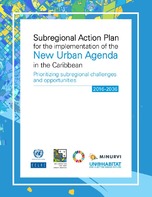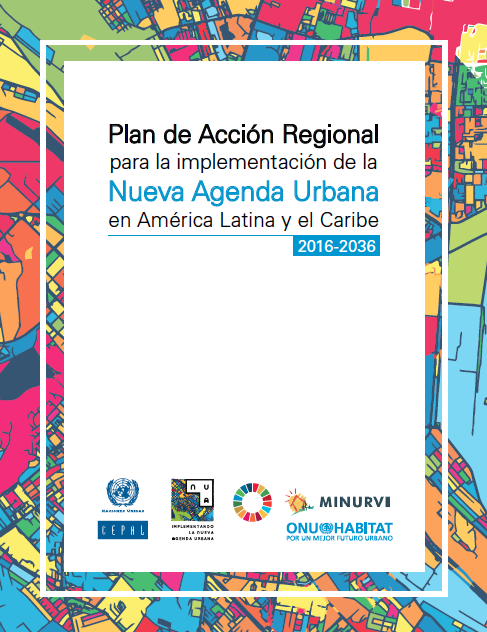Location
UN-Habitat is the United Nations programme working towards a better urban future.
Its mission is to promote socially and environmentally sustainable human settlements development and the achievement of adequate shelter for all. Cities are facing unprecedented demographic, environmental, economic, social and spatial challenges. There has been a phenomenal shift towards urbanization, with 6 out of every 10 people in the world expected to reside in urban areas by 2030. Over 90 per cent of this growth will take place in Africa, Asia, Latin America, and the Caribbean. In the absence of effective urban planning, the consequences of this rapid urbanization will be dramatic. In many places around the world, the effects can already be felt: lack of proper housing and growth of slums, inadequate and out-dated infrastructure – be it roads, public transport, water, sanitation, or electricity – escalating poverty and unemployment, safety and crime problems, pollution and health issues, as well as poorly managed natural or man-made disasters and other catastrophes due to the effects of climate change. Mindsets, policies, and approaches towards urbanization need to change in order for the growth of cities and urban areas to be turned into opportunities that will leave nobody behind. UN-Habitat, the United Nations programme for human settlements, is at the helm of that change, assuming a natural leadership and catalytic role in urban matters. Mandated by the UN General Assembly in 1978 to address the issues of urban growth, it is a knowledgeable institution on urban development processes, and understands the aspirations of cities and their residents. For close to forty years, UN-Habitat has been working in human settlements throughout the world, focusing on building a brighter future for villages, towns, and cities of all sizes. Because of these four decades of extensive experience, from the highest levels of policy to a range of specific technical issues, UN-Habitat has gained a unique and a universally acknowledged expertise in all things urban. This has placed UN-Habitat in the best position to provide answers and achievable solutions to the current challenges faced by our cities. UN-Habitat is capitalizing on its experience and position to work with partners in order to formulate the urban vision of tomorrow. It works to ensure that cities become inclusive and affordable drivers of economic growth and social development.
Members:
Resources
Displaying 56 - 60 of 224Subregional Action Plan for the implementation of the New Urban Agenda in the Caribbean: Prioritizing subregional challenges and opportunities 2016-2036
The Regional Action Plan for the Implementation of the New Urban Agenda in Latin America and the Caribbean (RAP) seeks to be the regional expression of the New Urban Agenda, setting out potential actions and interventions as well as relevant and priority policy guidance for all Latin American and Caribbean (LAC) countries in order to achieve sustainable urban development.This document was prepared by the Economic Commission for Latin America and the Caribbean (ECLAC), in cooperation with the United Nations Human Settlements Programme (UN-Habitat) and the Assembly of Ministers and High Autho
Plan de Acción Regional para la implementación de la Nueva Agenda Urbana en América Latina y el Caribe 2016-2036
Este Plan de Acción Regional (PAR) es una propuesta regional basada en el marco global para la implementación de la Nueva Agenda Urbana, resultado principal de la Tercera Conferencia de las Naciones Unidas sobre Vivienda y Desarrollo Urbano Sostenible, Habitat III, realizado en Quito, Ecuador en octubre 2016. La implementación de la Nueva Agenda Urbana en América Latina y el Caribe es fundamental para el desarrollo de los países y para el futuro sostenible de la región.
Plan de Acción Regional para la implementación de la Nueva Agenda Urbana en América Latina y el Caribe 2016-2036
Este Plan de Acción Regional (PAR) es una propuesta regional basada en el marco global para la implementación de la Nueva Agenda Urbana, resultado principal de la Tercera Conferencia de las Naciones Unidas sobre Vivienda y Desarrollo Urbano Sostenible, Habitat III, realizado en Quito, Ecuador en octubre 2016. La implementación de la Nueva Agenda Urbana en América Latina y el Caribe es fundamental para el desarrollo de los países y para el futuro sostenible de la región.
Plan de Acción Regional para la implementación de la Nueva Agenda Urbana en América Latina y el Caribe 2016-2036
Este Plan de Acción Regional (PAR) es una propuesta regional basada en el marco global para la implementación de la Nueva Agenda Urbana, resultado principal de la Tercera Conferencia de las Naciones Unidas sobre Vivienda y Desarrollo Urbano Sostenible, Habitat III, realizado en Quito, Ecuador en octubre 2016. La implementación de la Nueva Agenda Urbana en América Latina y el Caribe es fundamental para el desarrollo de los países y para el futuro sostenible de la región.
Plan de Acción Regional para la implementación de la Nueva Agenda Urbana en América Latina y el Caribe 2016-2036
Este Plan de Acción Regional (PAR) es una propuesta regional basada en el marco global para la implementación de la Nueva Agenda Urbana, resultado principal de la Tercera Conferencia de las Naciones Unidas sobre Vivienda y Desarrollo Urbano Sostenible, Habitat III, realizado en Quito, Ecuador en octubre 2016. La implementación de la Nueva Agenda Urbana en América Latina y el Caribe es fundamental para el desarrollo de los países y para el futuro sostenible de la región.


